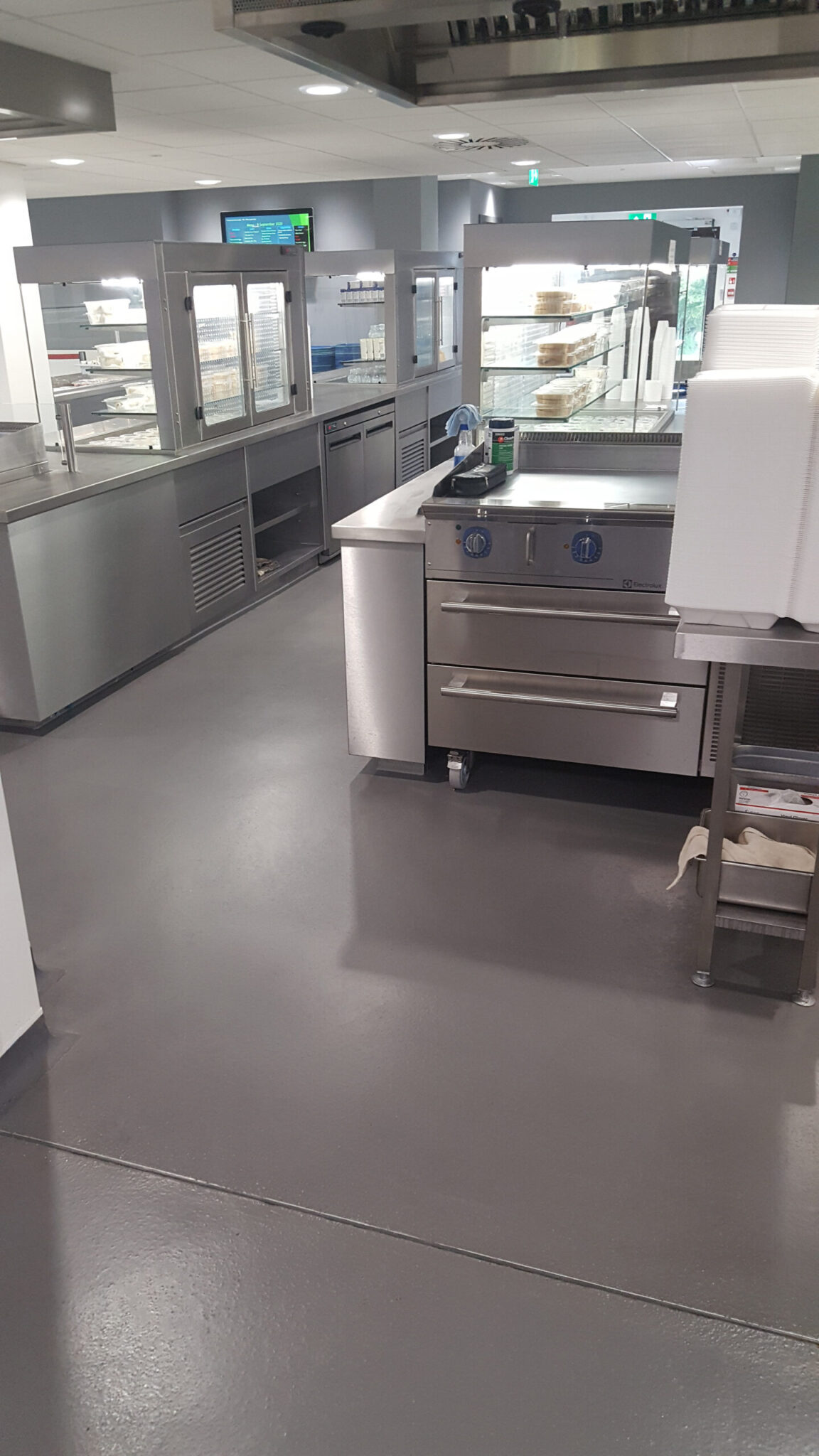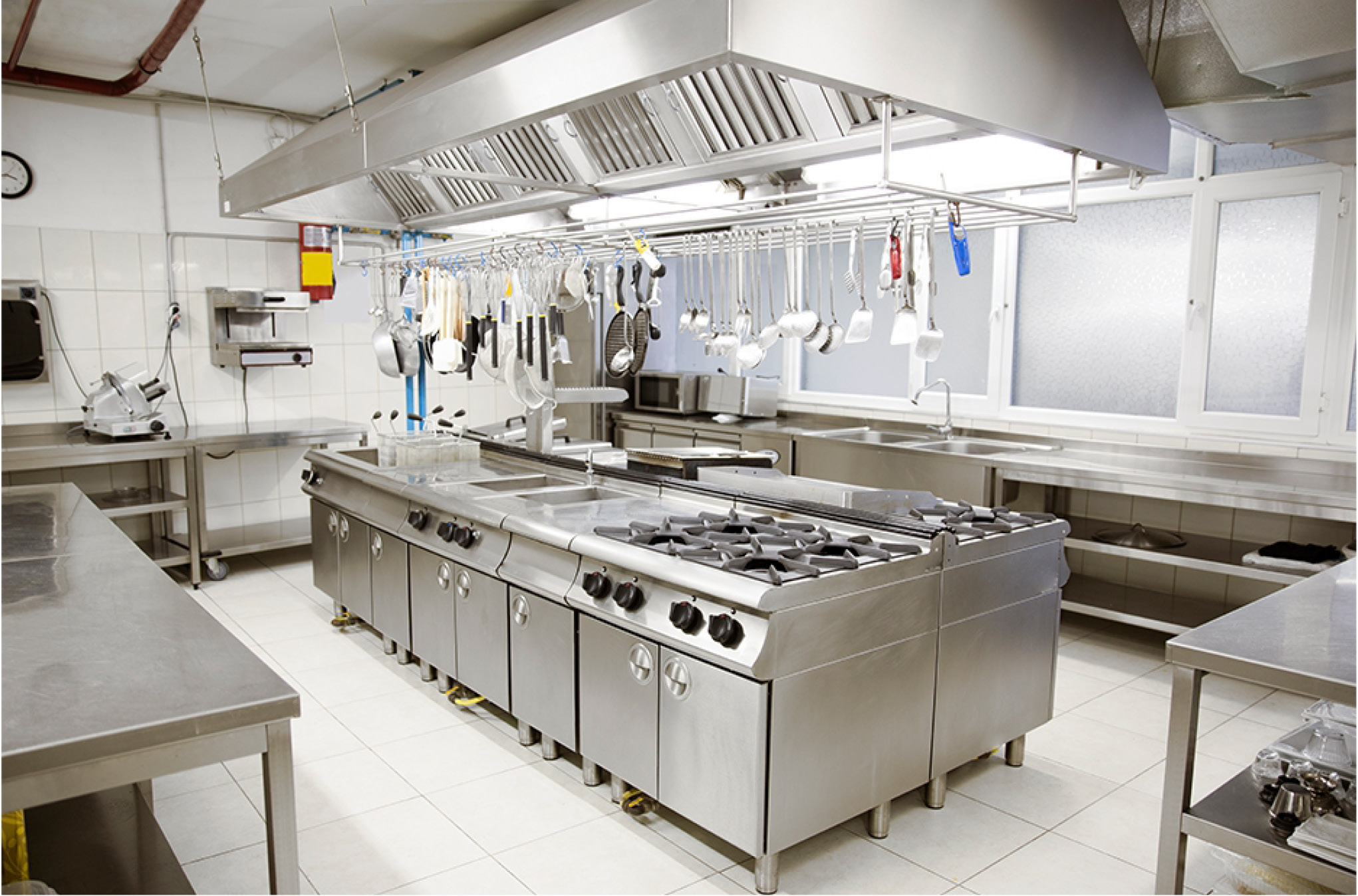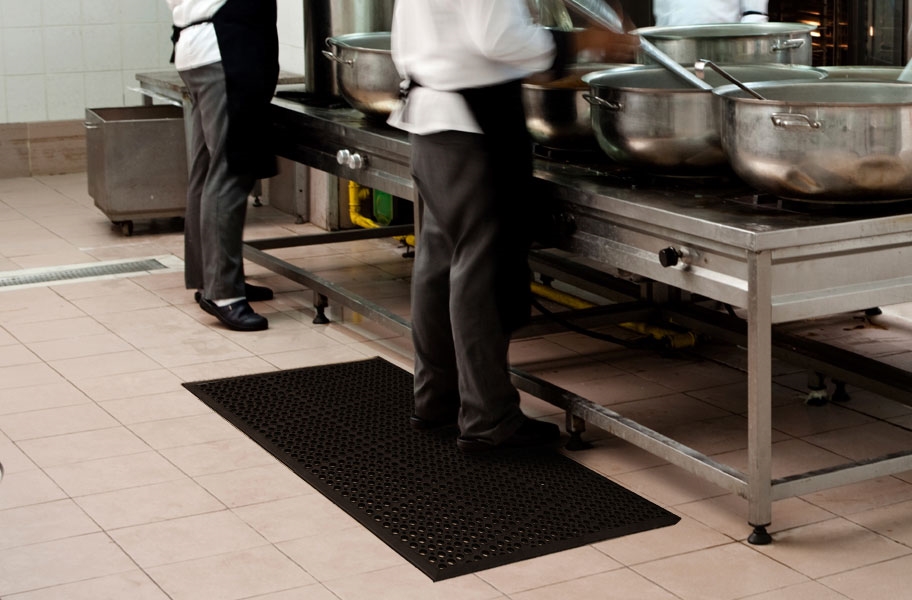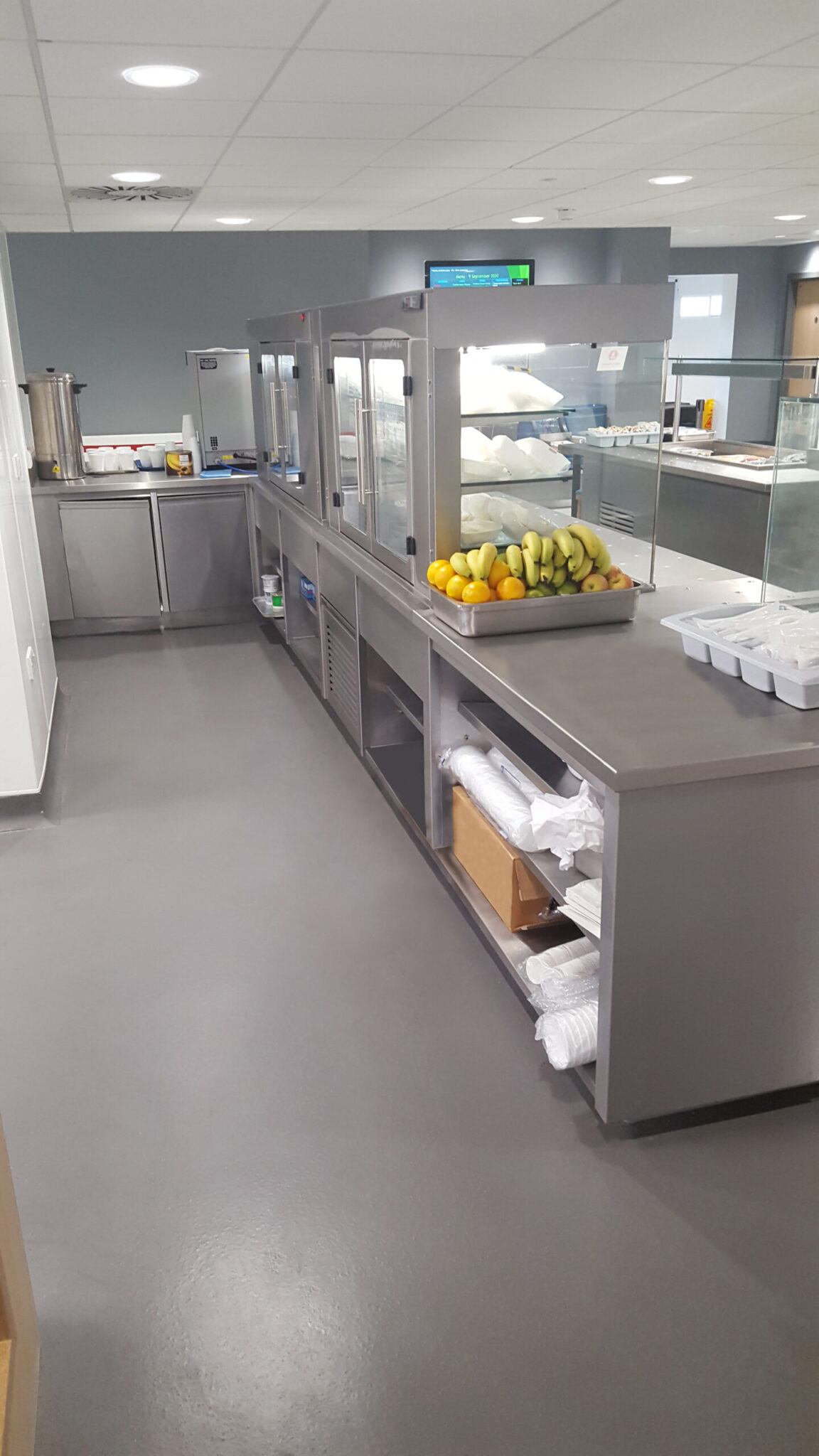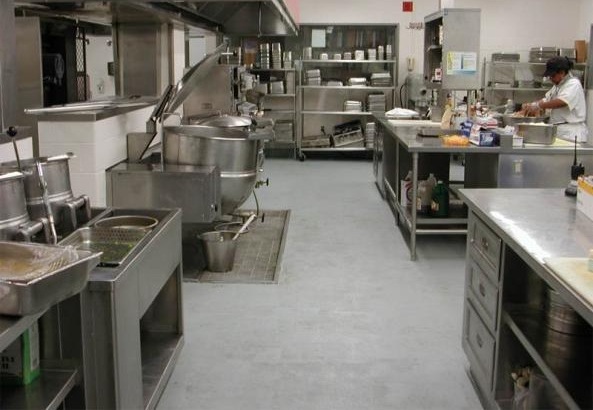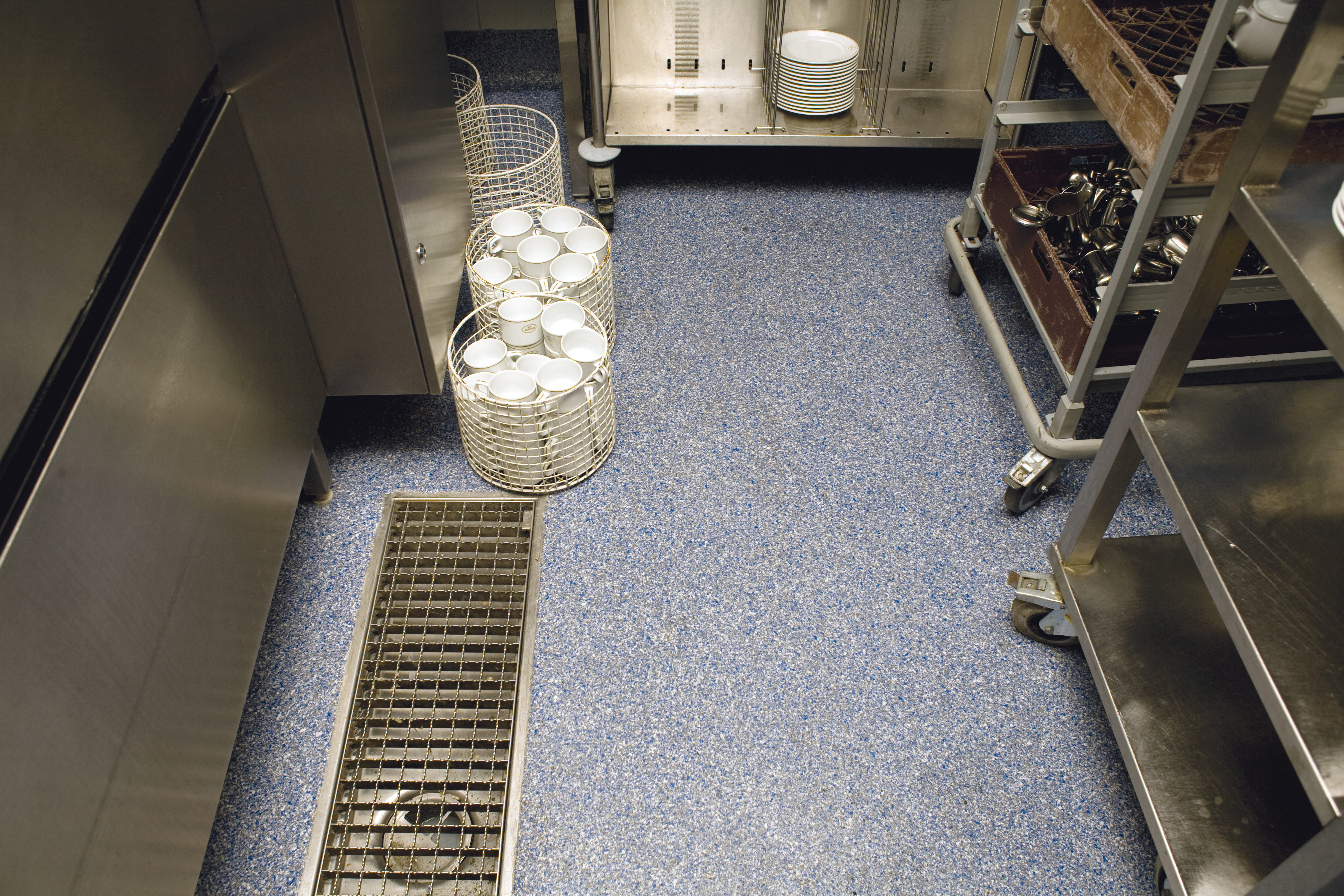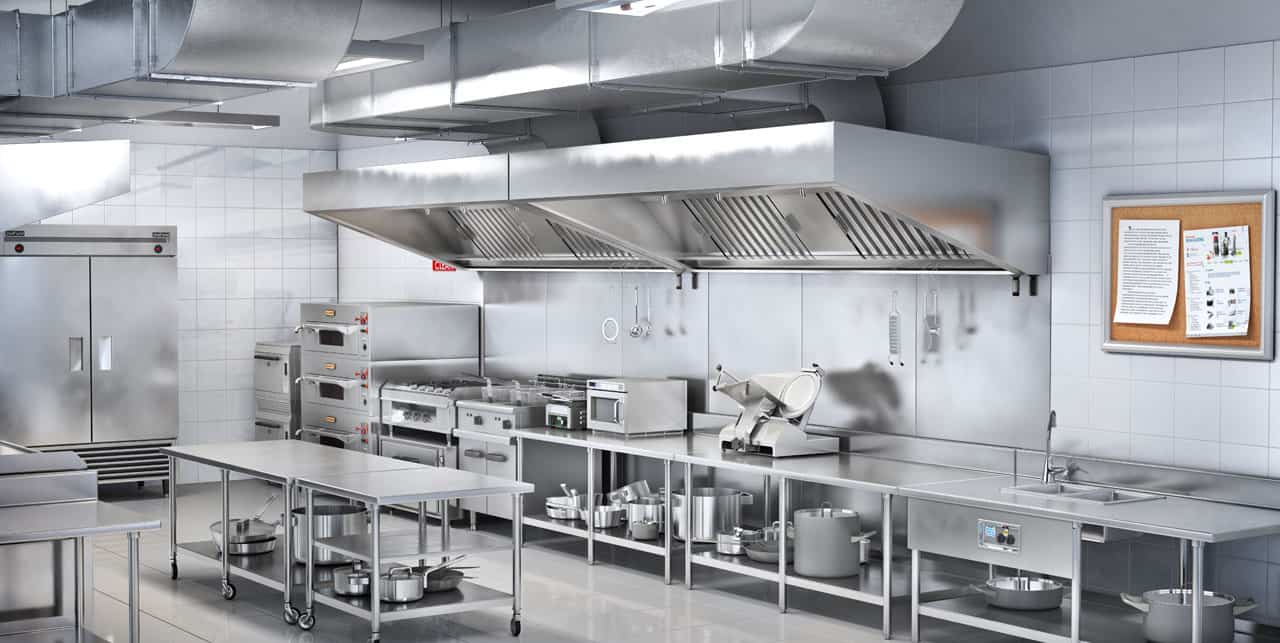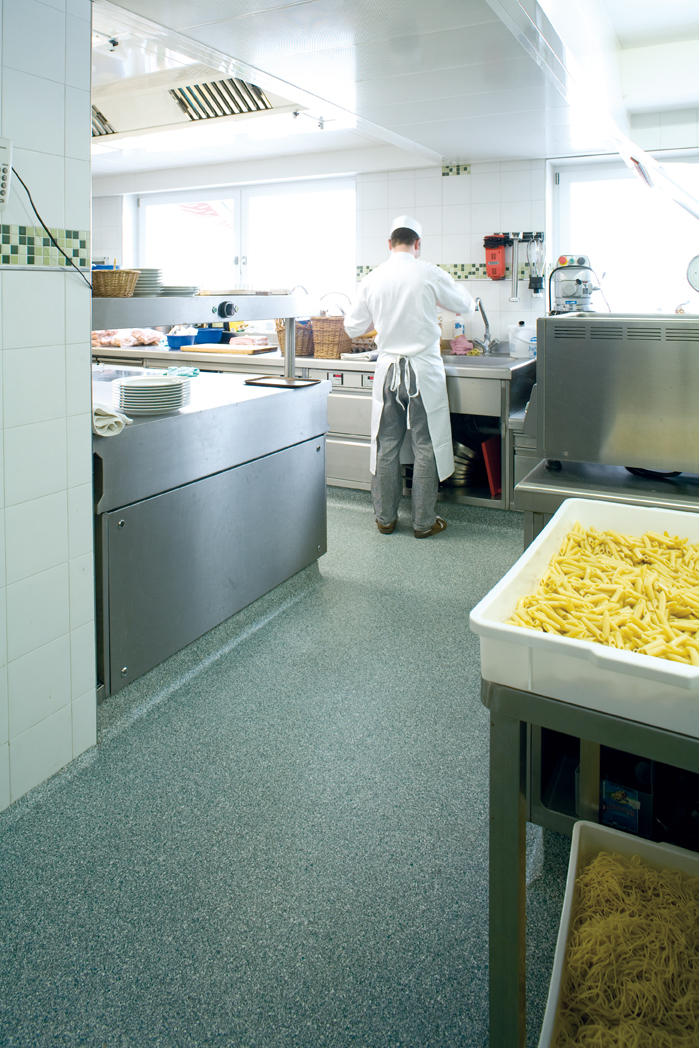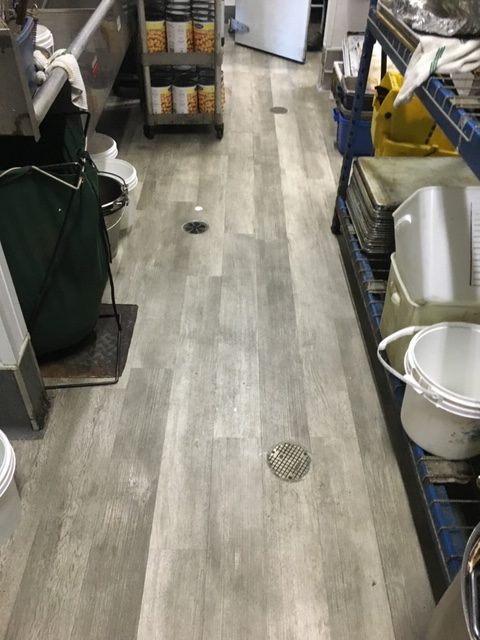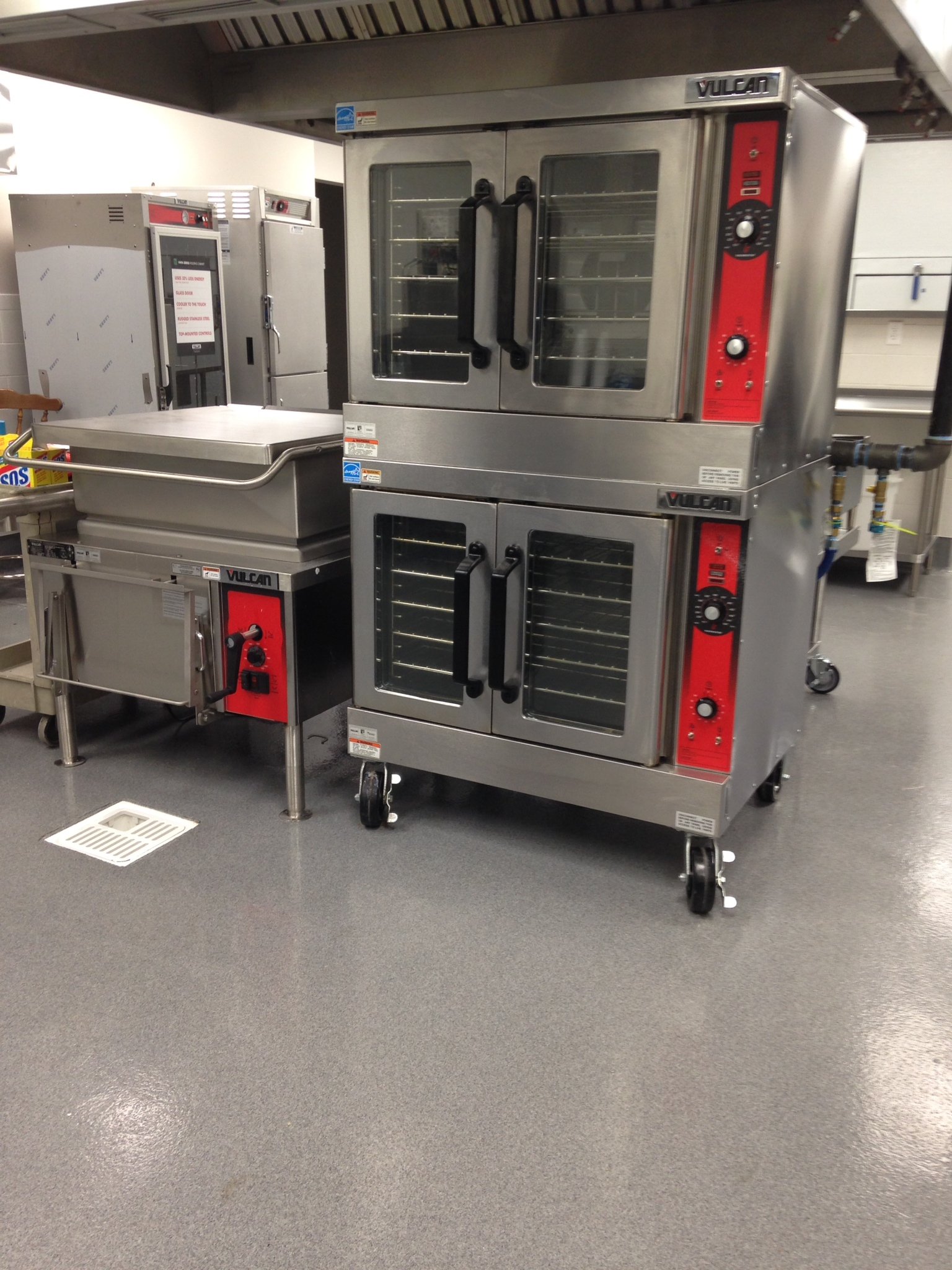Introduction to Commercial Kitchen Flooring
Commercial kitchens are bustling environments that require flooring solutions that can withstand heavy foot traffic, spills, and constant cleaning. Choosing the right flooring material for a commercial kitchen is crucial to ensure a safe and efficient working environment. Below are different types of commercial kitchen flooring options available in the market today.
- Ceramic Tiles: Ceramic tiles are a popular choice for commercial kitchen flooring due to their durability and resistance to stains, water, and heat. They are available in a variety of colors and patterns, allowing for customization to match the kitchen’s aesthetics. However, it’s important to ensure that the tiles are properly sealed to prevent grout lines from becoming a breeding ground for bacteria.
- Vinyl Flooring: Vinyl flooring is another common choice for commercial kitchens. It offers excellent slip resistance, is easy to clean, and comes in various styles, including sheet vinyl, vinyl tiles, and luxury vinyl planks. Vinyl flooring is also a cost-effective option, making it a preferred choice for many business owners.
- Epoxy Flooring: Epoxy flooring is a durable and seamless option for commercial kitchens. It is highly resistant to chemicals, stains, and moisture, making it ideal for busy kitchens. Epoxy flooring can also be customized with different colors and textures, providing a sleek and modern look.
- Quarry Tiles: Quarry tiles are made from natural clay and are known for their high resistance to heat and moisture. They are non-slip and provide excellent durability, making them suitable for heavy-duty environments. Quarry tiles are available in various earth tones, giving the kitchen a rustic and timeless appeal.
- Rubber Flooring: Rubber flooring is a resilient and comfortable option for commercial kitchens. It provides excellent slip resistance, absorbs noise, and is easy to clean. Rubber flooring is available in various colors and patterns, allowing for creative design possibilities.
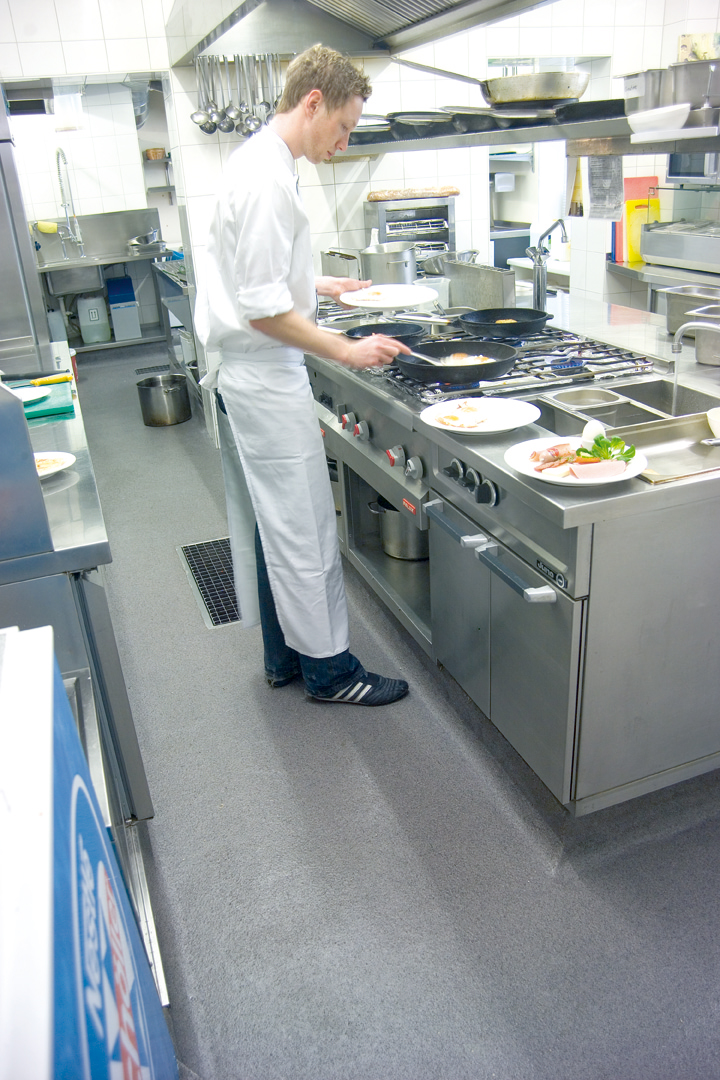
Safety First: Non-Slip Flooring Options for Commercial Kitchens
Safety is of utmost importance in a commercial kitchen, where spills and wet surfaces are common occurrences. Non-slip flooring options are essential to prevent accidents and ensure the well-being of kitchen staff. Below are some of the best non-slip flooring options for commercial kitchens.
Quarry Tiles: Quarry tiles are known for their excellent slip resistance, making them a top choice for commercial kitchens. The textured surface of quarry tiles provides traction, even when wet. These tiles are durable, easy to clean, and can withstand heavy foot traffic.
Safety Vinyl Flooring: Safety vinyl flooring is specifically designed to provide slip resistance in high-risk areas such as commercial kitchens. It has a textured surface that enhances grip, reducing the likelihood of accidents. Safety vinyl flooring is also hygienic and easy to maintain, making it a practical choice for busy kitchens.
Epoxy Flooring with Anti-Slip Additives: Epoxy flooring is already a popular choice for commercial kitchens due to its durability and seamless finish. By adding anti-slip additives to the epoxy mixture, the flooring becomes even more slip-resistant. This option provides both functionality and aesthetics, as epoxy flooring can be customized with different colors and textures.
Rubber Flooring: Rubber flooring is naturally slip-resistant and provides excellent traction even when wet. It absorbs impact, reducing the likelihood of injury due to slips and falls. Rubber flooring is also resistant to chemicals and easy to clean, making it a practical choice for busy commercial kitchens.
Textured Vinyl Flooring: Textured vinyl flooring is designed with slip resistance in mind. It has a textured surface that enhances grip, reducing the risk of accidents. Textured vinyl flooring is available in various designs and colors, allowing for flexibility in design while ensuring safety.
Choosing the Right Flooring Material for Longevity
In a fast-paced commercial kitchen environment, durability and ease of maintenance are crucial factors to consider when selecting the right flooring material. With constant foot traffic, spills, and heavy equipment, the flooring needs to withstand the test of time. Let’s discuss the importance of durability and maintenance and explore the best flooring materials for longevity in commercial kitchens.
Epoxy Flooring: Epoxy flooring is renowned for its exceptional durability. It can withstand heavy foot traffic, impacts, and chemical spills without showing signs of wear. Epoxy flooring is also seamless, making it easy to clean and maintain. Regular sweeping and mopping, along with occasional resealing, will keep the epoxy flooring in pristine condition for many years.
Quarry Tiles: Quarry tiles are known for their strength and longevity. Made from natural clay, they can withstand high temperatures, heavy equipment, and constant foot traffic. Quarry tiles require regular sweeping and mopping to keep them clean. Periodic resealing is recommended to maintain their durability and resistance to stains.
Stainless Steel Flooring: Stainless steel flooring is a durable and hygienic option for commercial kitchens. It is resistant to heat, moisture, and chemicals, making it suitable for heavy-duty environments. Stainless steel flooring is easy to clean and maintain, requiring regular sweeping, mopping, and occasional polishing to remove scratches and maintain its shine.
Concrete Flooring: Concrete flooring is a cost-effective and durable option for commercial kitchens. It can withstand heavy foot traffic, impacts, and spills. Regular sweeping, mopping, and occasional resealing will ensure the longevity and durability of concrete flooring in a commercial kitchen.
Luxury Vinyl Tile (LVT) Flooring: LVT flooring is a versatile and durable option for commercial kitchens. It is resistant to stains, scratches, and moisture, making it suitable for high-traffic areas. LVT flooring requires regular sweeping, mopping, and occasional polishing to maintain its durability and appearance.
Hygiene Matters: Anti-Microbial Flooring Solutions for Commercial Kitchens
Maintaining a high level of hygiene in a commercial kitchen is essential to prevent the spread of bacteria and ensure food safety. The flooring plays a significant role in maintaining a clean and hygienic environment. Here are several anti-microbial flooring solutions that are specifically designed for commercial kitchens.
Seamless Epoxy Flooring: Seamless epoxy flooring is a popular choice for commercial kitchens due to its hygienic properties. It is a non-porous material that prevents the growth of bacteria and is resistant to stains and chemicals. The seamless nature of epoxy flooring eliminates the risk of bacteria and food particles getting trapped in crevices, making it easy to clean and maintain a hygienic environment.
Bio-Pruf Vinyl Flooring: Bio-Pruf vinyl flooring is specially formulated with an anti-microbial additive that inhibits the growth of bacteria, mold, and mildew. This type of flooring is resistant to stains, chemicals, and moisture, making it suitable for the demanding environment of a commercial kitchen. Bio-Pruf vinyl flooring is easy to clean and maintain, ensuring a hygienic working space.
Copper-Infused Flooring: Copper has natural anti-microbial properties, and incorporating it into flooring materials can help prevent the growth of bacteria. Copper-infused flooring is an innovative solution for commercial kitchens, as it actively eliminates bacteria on the surface. This type of flooring is not only hygienic but also durable and easy to clean.
Anti-Microbial Rubber Flooring: Rubber flooring is inherently resistant to bacteria growth, and anti-microbial rubber flooring takes it a step further. This flooring is treated with anti-microbial agents that inhibit the growth of bacteria and prevent odors. Anti-microbial rubber flooring is also slip-resistant, comfortable to stand on, and easy to clean, making it an excellent choice for maintaining a hygienic environment in commercial kitchens.
Stainless Steel Flooring: Stainless steel flooring is not only durable but also naturally resistant to bacteria. It is a non-porous material that prevents the growth of bacteria and is easy to clean and sanitize. Stainless steel flooring is also heat-resistant, making it suitable for areas near cooking equipment. Its sleek and modern appearance adds to the overall cleanliness and aesthetics of the kitchen.
A Quick Guide to Choosing Commercial Kitchen Floors Floortech®
Commercial Kitchen Flooring: 5+ Ideas for Your Restaurant
Hygienic Commerical Restaurant Flooring
Five Flooring Considerations for Commercial Kitchens Modern
Best Floors for Commercial Kitchens
What is the Best Flooring for a Restaurant Kitchen?
Commercial Kitchen Flooring
Restaurant Kitchen Flooring ideas kitchen flooring options
Healthy & Hygienic Commerical Kitchen / Restaurant Flooring
A Quick Guide to Choosing Commercial Kitchen Floors Floortech®
Related Posts:
